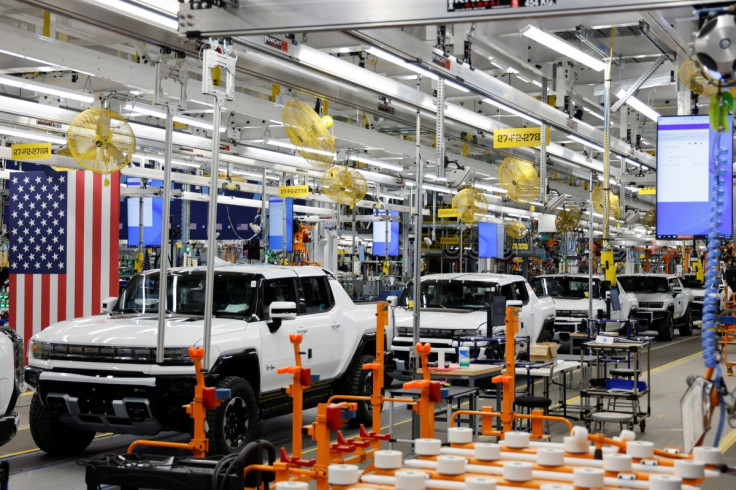Detroit's Big Three Automakers To Let Workers Stop Wearing Masks

Detroit's Big Three automakers said on Thursday they will allow autoworkers to stop wearing masks at workplaces where U.S. health officials have said it is safe to do so.
General Motors Co Ford Motor Co, Chrysler-parent Stellantis NV and the United Auto Workers union said in a joint statement they would adopt the new Centers for Disease Control and Prevention (CDC) guidance allowing workers at U.S. facilities to not wear masks regardless of COVID-19 vaccination status, if those facilities are not in high-risk counties.
The CDC said Thursday that 93% of Americans live in counties that are not high-risk.
Nearly all of Michigan, where the Big Three automakers have many of their plants are in areas where the CDC has deemed it safe to take off masks, including in the counties home to the headquarters of GM, Ford and Stellantis North America.
Other states home to many plants like Ohio and Illinois are also mostly deemed safe to drop masks, according to the CDC.
The Big Three, unlike some other major manufacturers, never mandated vaccines for thousands of unionized U.S. workers.
Last fall, Ford and Stellantis both required its U.S. salaried non-union workers to be vaccinated to seek exemptions.
GM, Ford and Stellantis all mandated vaccines for all autoworkers in Canada.
In August 2021, the U.S. automakers reinstated requirements to wear masks at all U.S. plants, offices and warehouses after a surge in COVID cases.
The CDC and other global public health agencies have advised wearing masks to prevent the spread of COVID but some have raised questions about their efficacy. Mask mandates have been opposed by various government officials and people who see the mandates as a government overreach.
© Copyright Thomson Reuters {{Year}}. All rights reserved.





















